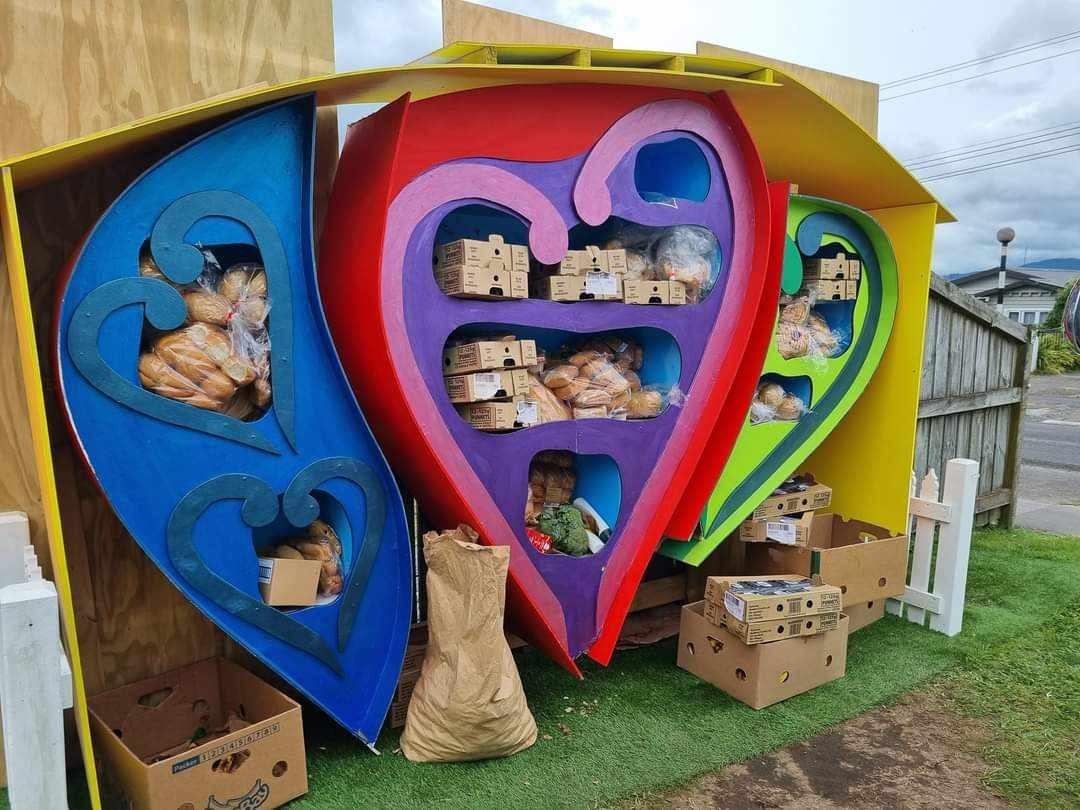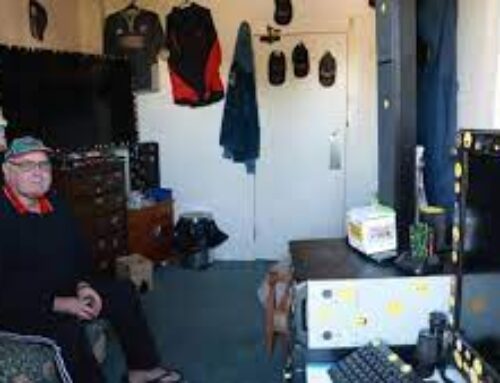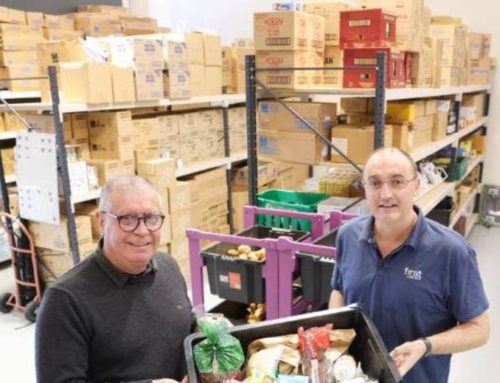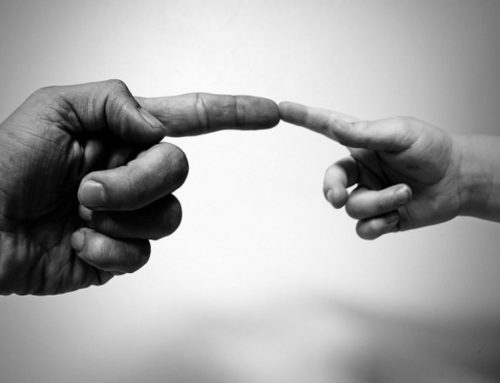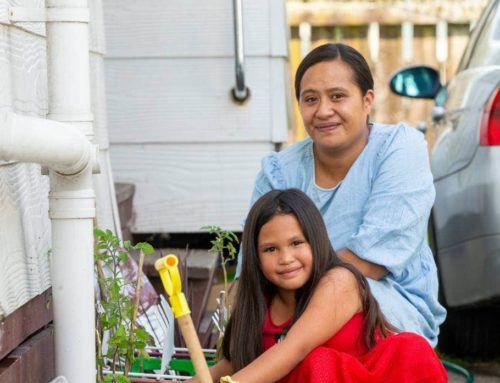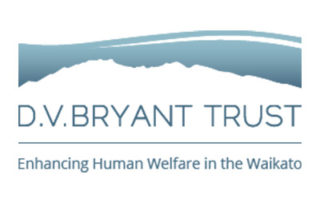10/03/2024
Food charities say they have seen a big increase in people using their services with one saying people even fight for food outside community pantries.
“We’re all about letting people take as much kai as they think they need. But others in the queue will say: ‘oh look how much they’re taking,'” says Julie King, from the Love Soup charity.
“It causes people to fight because of desperation. We don’t question people as to why they’re looking for food. We don’t want people to feel degraded. We just help,” she adds.
The team at Love Soup receive food from supermarkets, food businesses and other charities. Volunteers work quickly to get the food stocked up in community pantries as some of the items can be close to their best before date – but still safe to eat.
“We get bread, fruit, veges, pasta, dented cans. We recently were given pallets of baby shampoo so we’ve been giving that out lately. We get some chilled food like meat and cheese that we also give out straight as we’re filling the pantry just so it’s not sitting there,” says King.
“We love it when there’s packaging stuff-ups because then shops can’t sell it but we can take it.”
Love Soup helps stock around 25 community pantries located in Auckland, Tokoroa and Rotorua.
“A lot of people coming to the pantries are working. They’re earning an honest living and they’re not making ends meet,” King told Newshub.
“We have kids who walk past after school and they’ve had no food and will grab a plain bread roll. They’re so excited to be taking food home to mum and dad.”
St Vincent de Paul Hamilton General Manager, Mike Rolton says New Zealand is currently experiencing poverty on a level that hasn’t been seen in modern times.
He’s been part of the Vinnies team for 14 years.
“Six years ago we gave out 600 food parcels. Last year we did 6000 parcels. This year we’ve forecast we’ll do 7000 parcels, so you can see the increase,” said Rolton.
Vinnies Hamilton used to get more donations from members of the public but that’s dwindled down as people can no longer afford it.
“We’re using more of our own money to buy food. In the past we would have been lucky to spend 20 thousand dollars a year. Now we’re spending about 100 thousand dollars a year on food to put in our parcels,” Rolton told Newshub.
43-year-old Shona relies on food parcels from St Vincent de Paul to feed her children.
Around five years ago, her life changed forever after her partner and childhood sweetheart was killed in a car accident.
The tragedy meant that Shona would become a single mother to eight children.
Five of those children are still living under her roof while the older three have moved out.
Feeding her five children aged between 5 and 17 is a constant struggle.
“I have a budget of 100 dollars at the supermarket. I buy frozen vegetables, the cheapest meat there is and I try to get a bag of spuds each week which we ration out,” says Shona.
She is on a benefit and after 480 dollars for a private 2-bedroom rental is gone, plus power and her 100 dollar weekly family food budget, she’s left with next to nothing.
“Tossing up between paying my rent or buying food is pretty much where I’m at,” she tells Newshub.
To help top up her limited supermarket shop, Shona collects food parcels from St Vincent de Paul.
“I don’t see Vinnies every week as I don’t want to abuse them. I try to use them every second week when something like the power bill comes in.”
“The ladies at the food bank are awesome. Every now and again I get some muffins. I take them home and it’s a treat for my little ones,” she adds.
She says the food boxes include items such as canned food, pasta, long-life milk and a pack of mince.
“Sometimes we get tea for a cuppa and hot chocolate which is nice for the little ones. They try to give as much as they can but I try not to take too much.”
It’s not just New Zealanders on a benefit who are seeking out help with food.
Vinnies Hamilton estimates that while around 50 % of food parcels are going to beneficiaries, the other 50 percent are going to those who are in paid employment.
Rolton told Newshub that St Vincent de Paul is seeing a growing number of people dropping from “middle class” to the “working poor.”
“We’re seeing a lot of workers who you wouldn’t expect to be asking for help with food. But we’ve seen their budgets and they need help,” Rolton adds.
“A number of people working for government organisations are coming to us for food – people who are supervisors and in administration roles.” “If a social worker comes with a client to get food, the social worker may also need help with food too.
“Working couples are coming in for the first time and they’re so grateful. They’re in tears when we give them parcels.”
Rolton says there’s a wide range of people using their services from single people, families to the elderly. He tells Newshub a range of stories of who the charity helps.
One story involves a woman who had come into their retail shop looking worried. She didn’t appear to be shopping so staff approached her to see if she was okay. The woman broke down and said she had three teenagers to feed and wasn’t eating just so her children could.
Others say their fridges and cupboards are “completely bare.”
While one young parent only had $10 left over for food once all the bills were paid and was grateful for any food help Vinnies could provide.
Child Poverty Action Group states that one in eight Kiwi kids are living in material hardship.
This means they can’t afford six or more basics including fresh food, heating, doctor’s visits, car maintenance and unexpected bills.
Maori and Pacific children are experiencing greater rates of child poverty.
More than 1 in 5 Maori kids are living in poverty.
While for Pacific children it’s 1 in 3.
The group also says half of Kiwi kids in poverty are in households where parents work.
Child Poverty Reduction Minister Louise Upston has publicly said that tackling the rising cost of living and helping beneficiaries get into work will help lower child poverty statistics.
Mike Rolton is urging politicians to speak to community organisations to try and come up with more solutions.
“You can’t make a decision in Wellington if you don’t understand what is happening on the ground,” says Mike Rolton.
He also believes that large corporations such as power companies and supermarkets need to be more connected to communities and conscious of how much money they’re making.
“If some of the bigger corporations had a community conscious, maybe things would change.”
While the cost of daily life is still a constant stress for Hamilton mum Shona, she’s grateful to St Vincent de Paul for helping ease the load when it comes to food as well as extras.
“We haven’t got a car. We walk everywhere. Vinnies donated my kids a couple of scooters so we also scooter everywhere. Vinnies is my saviour. I thank them so much.”

